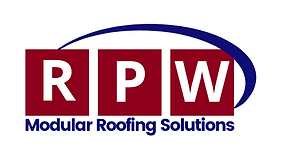
EVENT OVERVIEW
Canada is facing housing crisis, with affordability concerns and a severe shortage of homes. "We have a huge problem with affordability and we simply do not have enough homes," Mark Carney said. As a Canadian politician and economist, Mark plans to incentivize prefabricated and modular housing, a solution that reduces costs and speeds up construction. Besides, The Honourable Nathaniel Erskine-Smith, Minister of Housing, Infrastructure, and Communities, highlights the need for innovation, emphasizing that modular investments will help build affordable homes faster and more efficiently.
In response to Canada’s housing shortage, notable initiatives are underway. Quebec's Prefabricated Housing Initiative, backed by $992M CAD from both the federal and provincial governments under the Housing Accelerator Fund (HAF), aims to deliver 500 prefabricated multi-unit homes by 2026, contributing to 8,000 new social and affordable housing units. In Atlantic Canada, large-scale modular projects are advancing to expedite home construction through off-site building methods. Additionally, Hamilton Health Sciences is planning a $2-billion Juravinski Hospital redevelopment, which may integrate modular techniques to improve efficiency and timelines. These initiatives reflect a growing shift toward modular solutions to meet urgent housing and infrastructure demands.
Assembly Corp, a Canadian homebuilder specializing in modular construction, has recently purchased an entire prefab housing factory from a Swedish firm, the Lindbäcks Group and is relocating it to Ontario in 31 shipping containers to fast-track operations. Supported by a $4 million investment from FedDev Ontario, this move aims to boost Assembly Corp.'s manufacturing capacity for sustainable housing solutions. Meanwhile, Bonneville Homes is collaborating with Quebec-based non-profit UTILE on a 155-unit student housing project for the University of Quebec at Rimouski.
With an estimated 3.6 million new homes needed by 2035, averaging 300,000 units annually modular construction and prefabrication stand out as the most effective and efficient solutions to tackle Canada's housing crisis. The 5th Annual Modular Construction & Prefabrication Symposium by Trueventus will bring together industry leaders, policymakers, and experts to explore strategies, share insights, and drive innovation in scaling modular solutions across the country.
GOLD SPONSOR

UnitiWall’s prefabricated building envelope systems are engineered to exceed the performance of traditional construction methods. Designed for speed, durability, and energy efficiency, they offer industry-leading thermal performance, fast-track installation, and exceptional weather resistance. Whether for new builds, deep energy retrofits, or overcladding, our patented wall panels support virtually any cladding material or window system. Delivered fully finished and project-specific, each panel arrives ready for seamless on-site installation—reducing labour, timelines, and risk.
Learn more at www.unitiwall.com or contact us at 905-816-1641.
SILVER SPONSOR

SolidCAD is Canada’s trusted technology and consulting partner driving digital transformation for design, engineering, construction, and manufacturing organizations. With over 30 years of experience and deep expertise in CAD, BIM, CAM, cloud platforms, data and asset management, we help firms realize measurable value from their technology investments, boosting collaboration, streamlining workflows, and delivering smarter outcomes.
As part of Symetri and a leading Autodesk Platinum and Bluebeam Sapphire partner, SolidCAD empowers teams to work smarter, faster, and with confidence across every phase of the built environment.
We’re proud to support the 5th Annual Modular Construction & Prefabrication Symposium and the continued innovation of modular solutions in Canada.
EXHIBITOR SPONSOR

RPW Modular Roofing Solutions is a specialized supplier of single-ply roofing systems tailored for the modular construction industry across Canada and the U.S. As a division of RPW Associates, Inc., founded by Paul Whaley in 1998, RPW Modular was launched in 2021 to address the growing demand for efficient, durable, and code-compliant roofing solutions for modular buildings.
RPW Modular offers a comprehensive range of membranes, adhesives, fasteners, and accessories specifically designed for factory-built structures. The company is recognized for its exclusive supply of 13-foot-wide seamless Evaloy KEE PVC and TPO sheets—making it the only provider of this virtually seamless roofing membrane in North America. Additionally, RPW manufactures custom EPDM membranes, all aimed at reducing waste and streamlining installation processes.
The solutions provided by RPW Modular are customized to meet the specific needs of the modular construction sector. This includes efficient delivery options, flexible order volumes (ranging from sample panels to full loads), and a dedicated logistics strategy that minimizes shipping costs. Whether you are a modular builder, contractor, or consultant, RPW Modular is committed to delivering reliable roofing systems backed by expert knowledge and a collaborative approach.
With a combination of industry-leading products and accessible technical support, RPW Modular is helping to shape the future of modular construction—one roof at a time. They offer not only membranes but also a complete suite of roofing components, including primers, tapes, flashings, and fasteners, all engineered to perform efficiently under factory-controlled conditions and during on-site installations.

